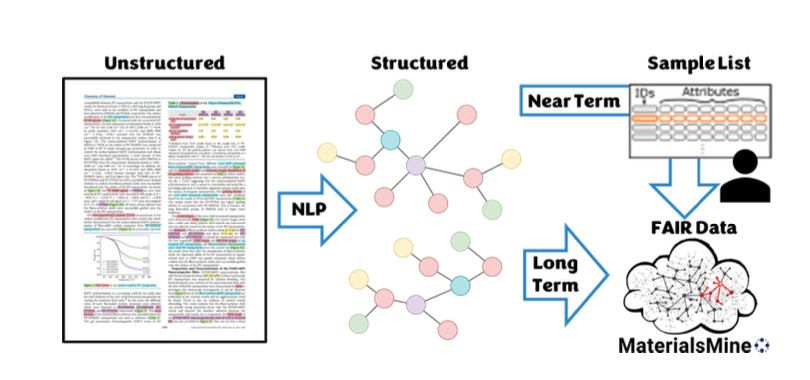We aim to overcome the difficulties in collecting and organizing experimental data on polymer nanocomposites, with an emphasis on curation, annotation, and access to characterization and analysis tools.

Active Researcher on the Project:
Relevant Publications
[1] Circi, D., Khalighinejad, G., Chen, A., Dhingra, B., & Brinson, L. C. (2024). How well do large language models understand tables in materials science?. Integrating Materials and Manufacturing Innovation, 13(3), 669-687.
[2] Circi, D., Khalighinejad, G., Chen, A., Dhingra, B., & Brinson, L. (2024). Extracting Materials Science Data from Scientific Tables. In ACL 2024 Workshop Language+ Molecules.
[3] Zimmermann, Y., Bazgir, A., Afzal, Z., Agbere, F., Ai, Q., Alampara, N., ... & Blaiszik, B. (2024). Reflections from the 2024 Large Language Model (LLM) Hackathon for Applications in Materials Science and Chemistry. arXiv preprint arXiv:2411.15221.
[4] Circi, D., Khalighinejad, G., Badhwar, S., Dhingra, B., & Brinson, L. (2023). Retrieval of synthesis parameters of polymer nanocomposites using llms. In AI for accelerated materials design-NeurIPS 2023 workshop.
[5] Hu, B., Lin, A., & Brinson, L. C. (2024). Tackling Structured Knowledge Extraction from Polymer Nanocomposite Literature as an NER/RE Task with seq2seq. Integrating Materials and Manufacturing Innovation, 13(3), 656-668.
[6] Jablonka, K. M., Ai, Q., Al-Feghali, A., Badhwar, S., Bocarsly, J. D., Bran, A. M., ... & Blaiszik, B. (2023). 14 examples of how LLMs can transform materials science and chemistry: a reflection on a large language model hackathon. Digital discovery, 2(5), 1233-1250.